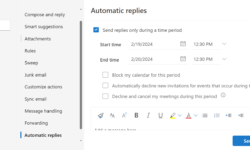Starting an event planning business comes with its challenges, and finding clients is at the top of the list. This blog post is your straightforward guide to attracting clients to your event planning business.
We’ll cover essential tactics from networking and social media strategies to leveraging testimonials and partnerships. With these actionable steps, you’ll learn how to effectively market your services and build a client base eager to work with you. Let’s dive in and set the foundation for your event planning success.
1. Establish a Professional Appearance
Projecting a professional image is critical before announcing your event planning venture. Start by selecting a memorable event planning business name that reflects your brand’s ethos.
Next, invest in a visually appealing, user-friendly website. Platforms like Wix or Blogspot can help launch your online presence without breaking the bank.
Complement your digital footprint with professionally designed business cards, creating a cohesive look across all materials. You can check these best free digital business cards to pick a good digital business card.
Your brand identity should resonate with you and convey reliability and style to potential clients. This initial step lays the foundation of your business, setting the tone for future interactions.
Remember, a solid professional appearance goes beyond aesthetics; it builds trust and sets you apart in the competitive event planning industry.
Read More: How To Write An Event Planning Business Description
2. Tap Into Friends and Family
Leveraging your network is a powerful step in building your event planning client base. Approach friends and family with a blend of professionalism and enthusiasm as you introduce your new business venture.
Distribute your well-designed business cards and share your passion for event planning. Offer your services for their upcoming events, possibly for a reduced fee or complimentary, in exchange for honest feedback and the opportunity to showcase your work on your website and marketing materials.
This strategy solidifies your initial client base and serves as a practical training ground. It fosters word-of-mouth promotion, which is crucial for early growth, as personal recommendations from trusted sources are invaluable in attracting future clients.
3. Leverage Social Media
Social media stands as a pivotal platform for budding event planners. Begin with a dedicated Facebook page for your business, encouraging friends and family to spread the word by liking and sharing your content.
Regular updates with engaging content, such as event planning tips, successful projects, and industry news, keep your audience hooked and help build a robust online presence. Extend your reach by creating an Instagram account to showcase your creativity and Pinterest boards for inspiration and ideas.
X allows for quick engagement with the community and sharing your blogs or articles. Active participation on these platforms enhances your visibility and establishes you as a knowledgeable and approachable expert in event planning.
Read More: Why Social Media Is Important to Small Businesses
4. Partnerships with Local Vendors
Establishing strategic alliances with local vendors is not just about expanding your network; it’s about creating a collaborative ecosystem for your event planning business.
You make a mutual referral system that benefits all parties by partnering with caterers, decorators, florists, and entertainment providers. Participate in local bridal shows or industry meetups to forge these valuable connections.
Hosting joint events, such as open houses or vendor showcases, can demonstrate the cohesive and innovative solutions you offer to potential clients.
These partnerships enhance the quality and range of your services and embed your business within the local community, making your event planning service a go-to solution through word-of-mouth and shared clientele.
5. Utilize Email Marketing
Email marketing is an effective tool for maintaining engagement and nurturing leads into clients. Start by offering a valuable resource or incentive for website visitors to subscribe to your email list—think downloadable planning guides, checklists, or exclusive discounts.
Craft your newsletters to include a mix of educational content, insider tips, success stories, and updates about your event planning services.
Segment your list to deliver tailored content that resonates with different groups within your audience, such as brides-to-be, corporate clients, or party planners.
Regular, valuable communication via email keeps your brand top-of-mind and can gently guide subscribers down the funnel, from interested prospects to loyal clients.
6. Leverage Local Media
Embracing local media is an essential strategy for amplifying your event planning business’s visibility. A powerful starting point is Craigslist, where posting ads or job listings can draw attention to your services at no cost.
Ensure these listings link back to your professional website, providing a pathway for prospective clients to explore your portfolio and contact you.
Engaging with local events, either by volunteering or offering your event planning services, can significantly expand your professional network.
Participation in charity events or community gatherings not only showcases your commitment to social causes but also introduces you to potential clients within your locality.
This hands-on approach in local media and community involvement lays a solid foundation for building your brand’s presence and credibility.
7. Focus on Reviews
Securing positive online reviews is a cornerstone for any emerging event planning business. Aim for at least ten stellar reviews on popular platforms such as Yelp, Google, or Facebook. This objective often begins with soliciting feedback from friends and family who’ve experienced your event planning services firsthand. Their genuine testimonials can significantly bolster your credibility.
A robust collection of five-star reviews enhances your digital footprint, attracting new clients by showcasing your reliability and quality of service. Remember, potential clients frequently consult reviews in the digital age as a trust signal before hiring.
Thus, a strong portfolio of positive reviews is invaluable in establishing your reputation in the competitive event planning landscape.
Also Check: Importance of Customer Feedback in Driving Small Business Growth
Conclusion
The journey to becoming a successful event planner depends on a series of strategic steps that begin with establishing a professional appearance and tapping into your network. By leveraging the power of social media, forming partnerships with local vendors, utilizing email marketing, engaging with local media, and focusing on accumulating positive reviews, you set a strong foundation for your business.
Each strategy not only elevates your brand’s visibility and credibility but also positions you as a trusted and innovative leader in the event planning industry.
Additional Resources:
- B2B Social Media Strategies To Grow Your Business
- Why Customer Loyalty Is Important (and How To Build It)
- Why Listening to Customers Is Important (and How To Do It)
- Marketing Techniques for Small Businesses (That Yield Results Quickly)



